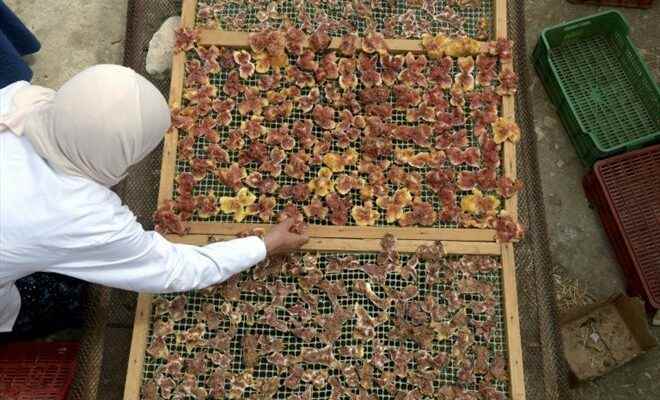Fig trees in Djebba, August 19, 2022 in Tunisia (AFP / FETHI BELAID)
At a time when drought is jeopardizing crops in Tunisia, “hanging gardens” in a village 700 meters above sea level in the northeast of the country are resisting thanks to a unique system listed as world agricultural heritage.
Known above all for its fig trees, Djebba has been part of the “Ingenious Systems of World Agricultural Heritage (GIAHS)” since 2020, an appellation managed by the Food and Agriculture Organization of the United Nations (FAO) which has awarded to some 70 sites in 22 different countries since 2005.
In Djebba, farmers have succeeded in shaping the mountainous landscape to their advantage by integrating agriculture on natural or dry stone terraces.
These “hanging gardens”, which also benefit from an efficient irrigation system, meet the food needs of local communities throughout the year.
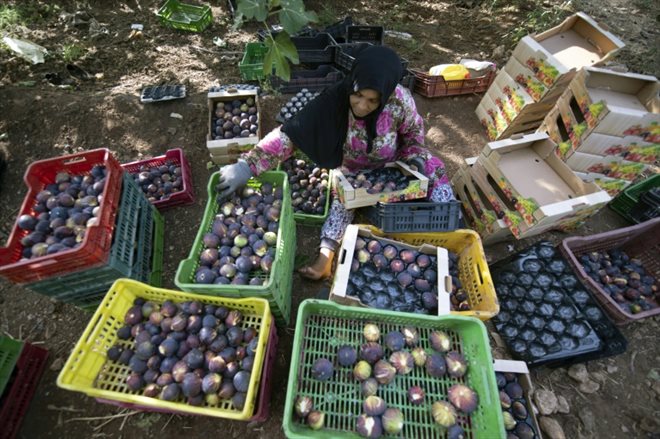
A woman fills crates with figs in Djebba on August 19, 2022 in Tunisia (AFP/FETHI BELAID)
If the gardens of Djebba produce many other fruits and vegetables, the fig remains the fetish fruit of the village which has organized since 2017 its annual festival of “Karmous” (fig in Tunisian dialect) to promote this flagship product and main source of income for the majority of the inhabitants of this region.
Djebba produces more than 13 varieties of figs including that of “Bouhouli” which grows only in this region and which has been protected by an Appellation d’Origine Contrôlée (AOC) since 2012.
-“Natural resources” –
The hanging gardens in the upper part of Djebba, are irrigated by water from five springs at the top of the mountain which flow to the traditional canals which cross the farms.
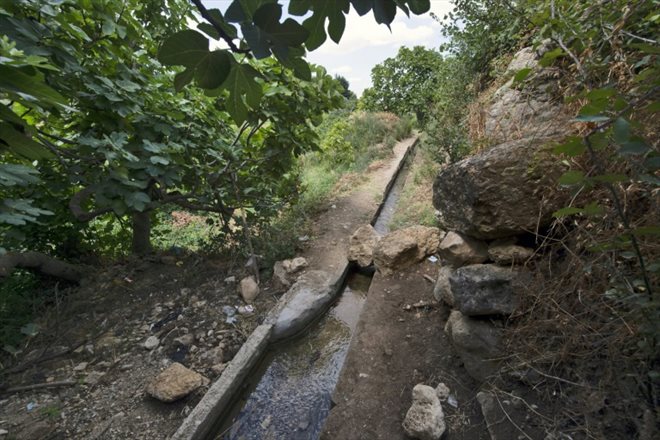
An irrigation system among fig trees on August 19, 2022 in Djebba, Tunisia (AFP/FETHI BELAID)
Farmers divide the water between them by opening and closing canals at specific times according to a sharing system based on the size of each garden and the number of its trees.
To take advantage of the “natural wealth” of her region, Farida Djebbi, 65, founded in 2016 a cooperative bringing together a dozen women to promote and encourage a return to traditional methods in the production of jam, dried figs and distilled water from several wild plants and flowers.
But the region is not completely immune to the vagaries of the weather, warns local activist Taoufik Rajhi, 60, who warns of a drop in the water level in the springs in recent years, which weighs ” a threat to the agricultural system”.
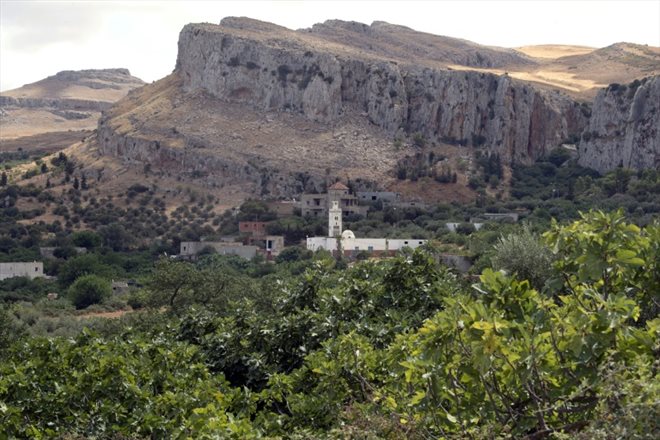
A mosque in the middle of fig trees in Djebba, August 19, 2022 in Tunisia (AFP / FETHI BELAID)
While “the upper area near water sources” remains sheltered, gardens below, where the leaves of some trees are yellowing, may suffer from water scarcity, he adds.
Mr. Rajhi believes that the drop in spring levels is mainly due to “climate change and poor rainfall”.
– “Keep the balance” –
But it also points to a tendency to favor commercial agriculture with intensive planting of fig trees, which are more profitable, to the detriment of other varieties that consume less water.
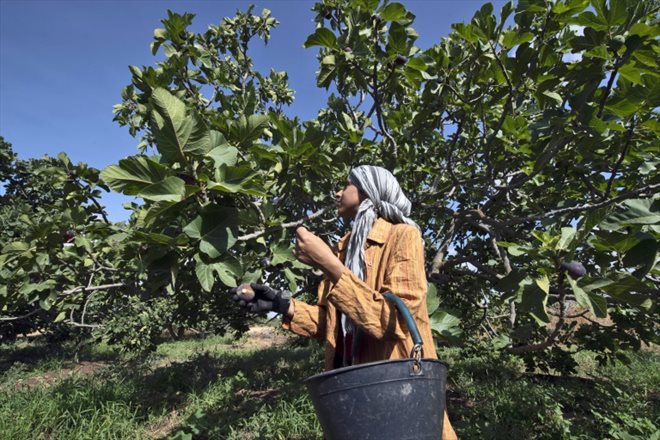
Picking figs in Djebba, August 19, 2022 in Tunisia (AFP / FETHI BELAID)
Hence, according to him, the need to “maintain the balance and diversity” of the gardens of Djebba. According to the FAO, such diversity indeed allows efficient use of water, maintains the richness of the soil and makes the model “resilient”.
Despite the drop in the water level and its potential impact on their crops, the farmers of Djebba boast of the specificity of their territory, which has, according to the press, no less than 25,000 fig trees.
In the middle of the harvest season on his farm, Lotfi Al-Zermani, 52, is delighted that the figs of Djebba are “highly demanded” in Tunisia but also for export, thanks to the AOC label.
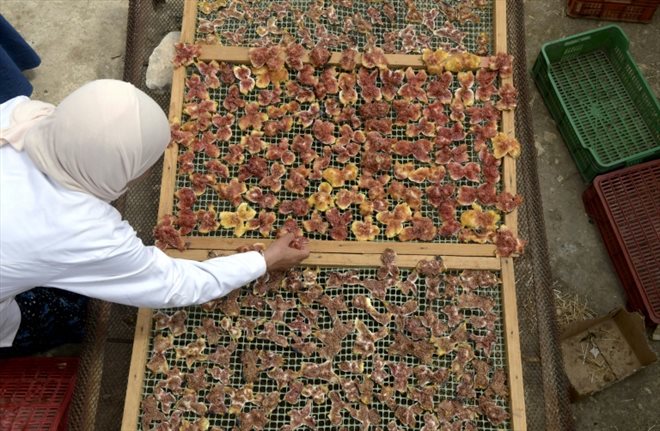
Sun-dried figs in Djebba, Tunisia on August 19, 2022 (AFP/FETHI BELAID)
“Exporting has become easier and is done in larger quantities, and the price of figs has increased,” he rejoices.
“The fig is not just a fruit in Djebba. We were born and we grow up among the fig trees. We learn to take care of them since childhood,” says Shaïma Rajhi, a 20-year-old student, harvesting the fruit iconic on the family farm.
© 2022 AFP
Did you like this article ? Share it with your friends with the buttons below.


